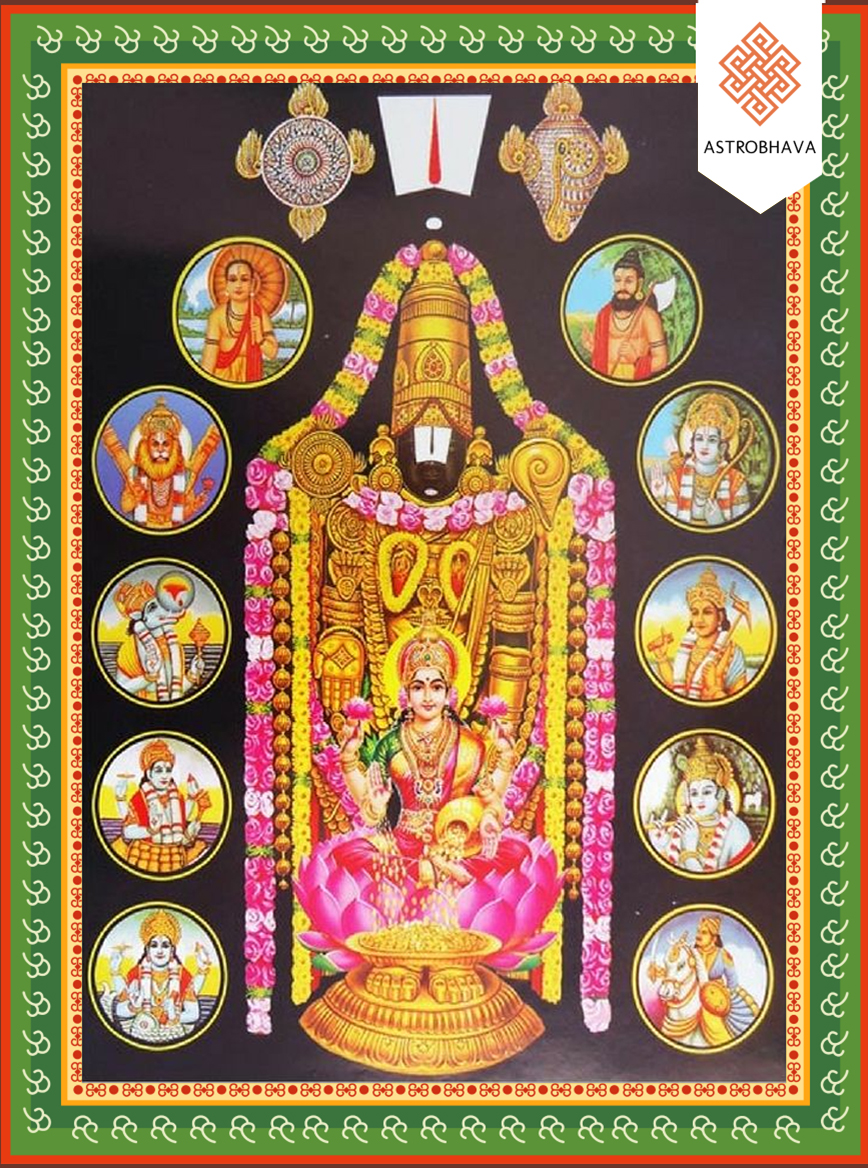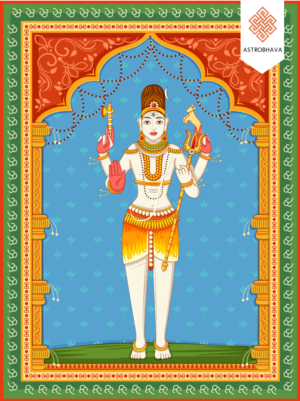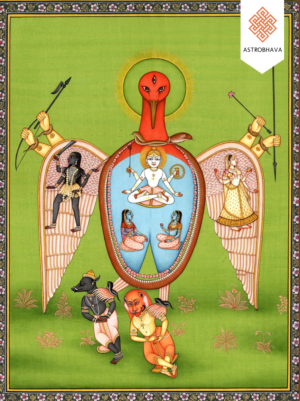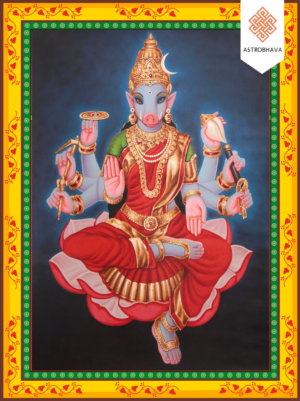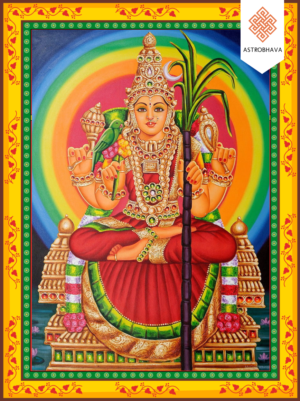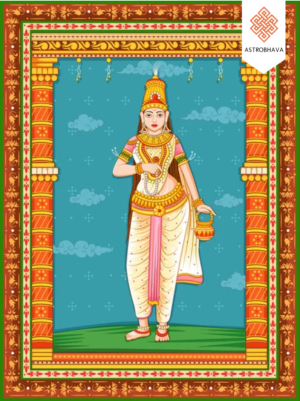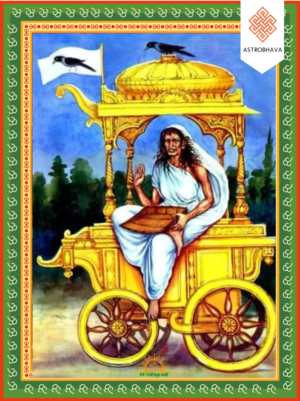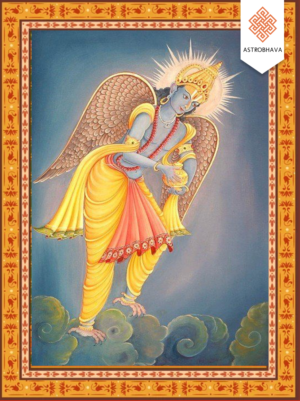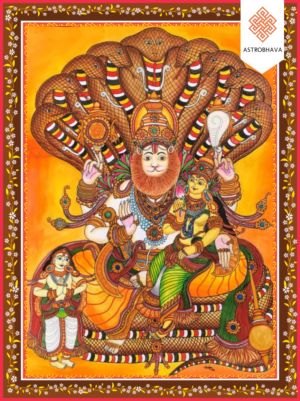Dasavathara Puja
₹1,001 – ₹48,048Price range: ₹1,001 through ₹48,048
Dasavathara Puja is a powerful Vedic ritual dedicated to the ten incarnations (avatars) of Lord Vishnu, each representing different aspects of divine intervention in the cosmic order. This sacred puja is performed to seek the blessings of all ten avatars of Lord Vishnu for protection, prosperity, and spiritual growth. By invoking their divine grace, devotees can experience enhanced strength, removal of obstacles, and overall well-being.

Benefits of Dasavathara Puja
The Dasavathara Puja, a revered ritual in Hinduism, is dedicated to the ten principal incarnations of Lord Vishnu, known as the Dasavathara. This puja holds immense significance in spiritual practices, offering a multitude of benefits to devotees. Each incarnation of Vishnu represents a unique aspect of divine intervention and cosmic balance, and performing the Dasavathara Puja is believed to harness these divine qualities for personal and spiritual growth.1. Spiritual Growth and Enlightenment
The Dasavathara Puja is instrumental in spiritual growth and enlightenment. By invoking the divine presence of the ten incarnations of Vishnu, devotees align themselves with the cosmic principles of dharma (righteousness) and karma (action). This alignment fosters a deeper understanding of spiritual truths and promotes inner peace and enlightenment.
2. Protection from Negative Energies
The puja is highly effective in protecting individuals from negative energies and influences. Each incarnation of Vishnu is associated with specific forms of protection and removal of obstacles. Performing this ritual helps in creating a protective shield around the devotee, safeguarding them from harmful influences and adversarial forces.
3. Enhancement of Prosperity and Success
Invoking the blessings of Lord Vishnu through the Dasavathara Puja can lead to enhanced prosperity and success. Vishnu’s incarnations, especially Vamana and Krishna, are associated with abundance and wealth. Devotees often experience improvements in their financial status and professional achievements as a result of performing this puja.
4. Resolution of Obstacles and Challenges
The puja is beneficial for overcoming obstacles and challenges in life. Each incarnation of Vishnu addresses different aspects of life’s hurdles. For instance, Lord Rama represents courage and righteousness in overcoming difficulties, while Lord Narasimha symbolizes protection from malevolent forces. The puja invokes these qualities, helping devotees to navigate through their challenges with greater ease.
5. Restoration of Harmony and Balance
The Dasavathara Puja aids in restoring harmony and balance in various aspects of life. The incarnations of Vishnu, through their divine roles, bring equilibrium to the cosmic order. By performing this puja, devotees seek to restore balance in their personal lives, relationships, and environment, leading to overall well-being and harmony.
6. Promotion of Health and Wellness
Regular performance of the Dasavathara Puja is believed to have positive effects on health and wellness. The divine energies invoked through the puja help in maintaining physical and mental health. Devotees often experience reduced stress, improved immunity, and overall better health as a result of engaging in this sacred ritual.
7. Fulfillment of Desires and Aspirations
The Dasavathara Puja is effective in fulfilling personal desires and aspirations. By seeking the blessings of the ten incarnations, devotees align their goals with divine will. This alignment helps in manifesting their desires and achieving their aspirations, whether they are related to career, education, or personal growth.
8. Strengthening of Family Bonds
Performing the Dasavathara Puja fosters unity and harmony within the family. The puja creates a sacred space that promotes positive interactions and strengthens familial bonds. It also encourages mutual support and understanding among family members, leading to a more harmonious family life.
9. Guidance and Wisdom
The puja provides valuable guidance and wisdom. Each incarnation of Vishnu embodies different virtues and lessons that are relevant to various aspects of life. By invoking these divine qualities, devotees gain insight and wisdom that guide them in making informed decisions and navigating life’s complexities.
10. Spiritual Purification and Cleansing
The Dasavathara Puja serves as a spiritual purification and cleansing ritual. It helps in removing accumulated negative karma and purifying the soul. The divine blessings received through the puja cleanse the mind and spirit, leading to a renewed sense of purity and spiritual clarity.
11. Inspiration for Righteous Living
The Dasavathara Puja inspires devotees to live a life of righteousness and virtue. Each incarnation of Vishnu exemplifies qualities such as courage, truthfulness, and compassion. Engaging in this puja motivates individuals to adopt these virtues in their own lives, leading to ethical and righteous living.
12. Development of Devotion and Faith
Participating in the Dasavathara Puja enhances devotion and faith in divine principles. The ritual deepens the devotee’s connection with Lord Vishnu and strengthens their belief in divine intervention. This increased faith contributes to a more profound and meaningful spiritual practice.
13. Cultivation of Positive Karma
Performing the Dasavathara Puja contributes to the accumulation of positive karma. The ritual aligns the devotee with divine energies and cosmic principles, resulting in favorable outcomes and experiences. Positive karma cultivated through this puja influences various aspects of life positively.
14. Promotion of Mental Clarity and Focus
The puja aids in enhancing mental clarity and focus. By invoking the divine qualities of Lord Vishnu, devotees experience improved concentration and mental acuity. This benefit is particularly useful for those engaged in studies, professional work, or any endeavor requiring mental sharpness.
15. Elevation of Spiritual Consciousness
Engaging in the Dasavathara Puja elevates spiritual consciousness. The ritual serves as a pathway to higher spiritual realms, offering a deeper connection with the divine. This elevated consciousness leads to greater spiritual awareness and a more profound understanding of one’s place in the universe.
16. Attraction of Divine Grace
The puja attracts divine grace and blessings from Lord Vishnu. Performing this ritual invites the divine presence into one’s life, leading to the experience of divine favor and support. The grace received through the puja assists in overcoming difficulties and achieving spiritual goals.
17. Encouragement of Self-Discipline and Dedication
The Dasavathara Puja encourages self-discipline and dedication. The process of preparing for and performing the puja requires commitment and focus, fostering a sense of discipline in the devotee’s spiritual practice. This dedication contributes to personal growth and spiritual development.
18. Promotion of Global Peace and Harmony
The puja has broader implications for global peace and harmony. By invoking the divine energies of Vishnu’s incarnations, devotees contribute to the overall harmony and balance of the cosmos. This collective spiritual practice promotes peace and unity on a global scale.
19. Strengthening of Devotional Practices
The Dasavathara Puja strengthens overall devotional practices. It serves as a comprehensive ritual that integrates various aspects of worship and devotion. Regular participation in this puja enhances the devotee’s spiritual routine and deepens their connection with the divine.
20. Legacy of Divine Tradition
Performing the Dasavathara Puja preserves and honors the divine traditions and rituals of Hinduism. By engaging in this sacred practice, devotees uphold the spiritual legacy and cultural heritage associated with Lord Vishnu’s incarnations, ensuring the continuity of these revered traditions.
In summary, the Dasavathara Puja offers a multitude of benefits, ranging from spiritual growth and protection to prosperity and health. By invoking the divine qualities of the ten incarnations of Vishnu, devotees can experience profound positive changes in their lives, fostering overall well-being and spiritual fulfillment.Who can perform Dasavathara Puja?
The Dasavathara Puja is a revered ritual dedicated to the ten principal incarnations of Lord Vishnu. This sacred puja is beneficial for a wide range of individuals seeking various blessings and improvements in their lives. Understanding who can most benefit from performing this ritual can help maximize its spiritual and practical advantages. Here’s a detailed overview of the ideal people who should consider performing the Dasavathara Puja:
1. Individuals Seeking Spiritual Growth and Enlightenment
The Dasavathara Puja is highly beneficial for those on a spiritual journey seeking growth and enlightenment. By invoking the divine presence of Lord Vishnu’s ten incarnations, individuals align themselves with higher cosmic principles, facilitating deeper spiritual understanding and personal transformation. This puja helps in expanding consciousness and fostering a closer connection with the divine.
2. Those Facing Obstacles and Challenges
People encountering significant obstacles and challenges in their lives can greatly benefit from the Dasavathara Puja. Each incarnation of Vishnu addresses different aspects of overcoming difficulties. For example, Lord Rama symbolizes strength and righteousness in adversity, while Lord Narasimha represents protection from negative forces. Performing this puja invokes these divine qualities to assist in overcoming personal and professional hurdles.
3. Individuals Seeking Protection and Safety
Those who feel vulnerable to negative energies or seek protection from harmful influences should consider performing the Dasavathara Puja. The puja creates a protective shield around the devotee, drawing on the protective aspects of Vishnu’s incarnations. This ritual is especially useful for safeguarding oneself from physical, emotional, and spiritual threats.
4. People Looking for Prosperity and Success
The Dasavathara Puja is ideal for individuals seeking prosperity and success in various aspects of their lives. Incarnations like Vamana and Krishna are associated with abundance and wealth. By engaging in this puja, devotees can attract divine blessings that enhance their financial stability, career success, and overall prosperity.
5. Those Experiencing Health Issues
Individuals facing health challenges or seeking to improve their well-being can benefit from the Dasavathara Puja. The puja is believed to have positive effects on physical and mental health, fostering overall wellness. By invoking the divine energies of Vishnu’s incarnations, devotees seek blessings for improved health, reduced stress, and enhanced vitality.
6. Families Seeking Harmony and Unity
The Dasavathara Puja is also beneficial for families aiming to enhance harmony and unity within their household. The ritual creates a sacred space that promotes positive interactions and strengthens familial bonds. By participating in this puja, family members can foster mutual understanding, support, and overall familial well-being.
7. Individuals Pursuing Educational and Career Goals
For those pursuing educational or career advancements, the Dasavathara Puja offers valuable support. The divine qualities invoked during the puja help in enhancing focus, mental clarity, and determination. This ritual assists students and professionals in achieving their goals, improving their performance, and overcoming obstacles in their educational and career paths.
8. Devotees Seeking Divine Guidance and Wisdom
The puja is highly effective for individuals seeking divine guidance and wisdom in their lives. Each incarnation of Vishnu embodies specific virtues and lessons that provide valuable insights. By participating in the Dasavathara Puja, devotees gain clarity and wisdom to make informed decisions and navigate life’s complexities.
9. Individuals Interested in Spiritual Cleansing and Purification
Those seeking spiritual cleansing and purification will find the Dasavathara Puja to be highly beneficial. The ritual helps in removing accumulated negative karma and purifying the soul. Engaging in this puja facilitates a sense of spiritual renewal and clarity, leading to a more purified and enlightened state of being.
10. People Seeking Fulfillment of Desires and Aspirations
The Dasavathara Puja is ideal for those who wish to fulfill personal desires and aspirations. By invoking the blessings of Lord Vishnu’s incarnations, devotees align their goals with divine will. This alignment helps in manifesting desires and achieving aspirations related to various aspects of life, including career, relationships, and personal growth.
11. Those Interested in Enhancing Devotional Practices
Individuals looking to deepen their devotional practices will benefit from performing the Dasavathara Puja. The ritual integrates various aspects of worship and devotion, enhancing the devotee’s spiritual routine. Regular participation in this puja strengthens the connection with Lord Vishnu and deepens the overall devotional experience.
12. Individuals Seeking Protection from Adversaries
For those facing conflicts or adversaries, the Dasavathara Puja offers divine protection and support. The ritual invokes the protective aspects of Vishnu’s incarnations, creating a shield against adversarial forces. This protective energy helps in safeguarding the devotee from negative influences and conflicts.
13. People Interested in Promoting Global Peace and Harmony
The puja has broader implications for global peace and harmony. By participating in this sacred ritual, individuals contribute to the overall harmony and balance of the cosmos. This collective spiritual practice promotes peace, unity, and positive energy on a global scale.
14. Individuals Seeking to Strengthen Self-Discipline and Dedication
Performing the Dasavathara Puja encourages self-discipline and dedication. The ritual requires commitment and focus, fostering a sense of discipline in the devotee’s spiritual practice. This dedication contributes to personal growth and enhances the effectiveness of spiritual routines.
15. Families and Communities Seeking Collective Blessings
The Dasavathara Puja is also beneficial for families and communities seeking collective blessings. By performing the ritual together, families and communities unite in their spiritual practice, receiving shared blessings and fostering a sense of communal harmony.
16. Individuals Seeking a Connection with Divine Tradition
Those interested in preserving and honoring divine traditions will find the Dasavathara Puja to be highly meaningful. The ritual upholds the spiritual legacy and cultural heritage associated with Lord Vishnu’s incarnations, ensuring the continuity of these revered traditions.
17. People Seeking to Enhance Mental Clarity and Focus
The puja helps in enhancing mental clarity and focus. By invoking divine qualities associated with Vishnu’s incarnations, devotees experience improved concentration and mental acuity. This benefit is particularly useful for those engaged in studies, professional work, or any endeavor requiring mental sharpness.
18. Individuals Interested in Cultivating Positive Karma
The Dasavathara Puja contributes to the accumulation of positive karma. By aligning with divine energies and cosmic principles, devotees influence various aspects of life positively. This accumulation of positive karma results in favorable outcomes and experiences.
19. People Seeking Inspiration for Righteous Living
The puja inspires individuals to live a life of righteousness and virtue. Each incarnation of Vishnu exemplifies qualities such as courage, truthfulness, and compassion. Engaging in this puja motivates individuals to adopt these virtues in their own lives.
20. Those Seeking to Honor and Respect Divine Traditions
Individuals who wish to honor and respect the divine traditions of Hinduism will find the Dasavathara Puja to be a significant ritual. By participating in this puja, devotees uphold the spiritual practices and cultural heritage associated with Lord Vishnu’s incarnations, ensuring the continuity and respect of these sacred traditions.
In summary, the Dasavathara Puja is ideal for a diverse range of individuals seeking spiritual growth, protection, prosperity, and overall well-being. Whether dealing with personal challenges, seeking divine guidance, or aiming to enhance devotional practices, this puja offers valuable benefits and support.
Unique traits about the Dasavathara/ Facts about the Dasavathara
- Ruling Deity: Lord Vishnu in his ten incarnations (Matsya, Kurma, Varaha, Narasimha, Vamana, Parashurama, Rama, Krishna, Buddha, Kalki)
- Symbols: Conch, discus, lotus, mace
- Attributes: Protection, prosperity, strength
- Animal Symbols: Various animals associated with each avatar
- Planetary Ruler: Jupiter (Guru)
- Element: Water
The Dasavathara, or the Ten Avatars of Lord Vishnu, represents a significant aspect of Hindu theology and cosmology. Each of these incarnations embodies unique traits and characteristics that reflect the diverse ways in which Lord Vishnu preserves cosmic order and addresses the needs of the world. Understanding these traits can provide deeper insights into the spiritual and cultural significance of these divine manifestations. Here is an exploration of the unique traits of the Dasavathara, highlighting their relevance and significance:
1. Matsya (The Fish)
The first avatar of Lord Vishnu is Matsya, the Fish, which played a crucial role in preserving life during the great deluge. This avatar symbolizes protection and salvation. Matsya guided King Manu’s boat, which carried the seeds of all plants and the Saptarishi (seven great sages), ensuring the continuation of life on Earth. This incarnation exemplifies Vishnu’s role as a savior and protector of life during catastrophic events.
2. Kurma (The Tortoise)
The second avatar, Kurma, the Tortoise, represents stability and support. In this form, Vishnu took the shape of a tortoise to support Mount Mandara, which was used as a churning rod during the churning of the ocean (Samudra Manthan). This act was vital in obtaining the nectar of immortality (amrita) and symbolizes Vishnu’s role in sustaining cosmic balance and providing support during pivotal cosmic events.
3. Varaha (The Boar)
Varaha, the Boar, is the third avatar and symbolizes strength and protection. In this incarnation, Vishnu rescued the Earth (Prithvi) from the demon Hiranyaksha, who had submerged it into the cosmic ocean. Varaha’s act of lifting the Earth with his tusks signifies the restoration of order and the protection of the Earth from demonic forces.
4. Narasimha (The Man-Lion)
The fourth avatar, Narasimha, the Man-Lion, is known for his fierce form and represents divine intervention and justice. Vishnu assumed this form to protect his devotee Prahlada and to defeat the demon Hiranyakashipu, who was immune to being killed by man or beast. Narasimha’s appearance highlights Vishnu’s commitment to safeguarding his devotees and upholding righteousness, regardless of the form it takes.
5. Vamana (The Dwarf)
Vamana, the Dwarf, is the fifth avatar and embodies humility and cosmic order. Vishnu took the form of a small Brahmin dwarf to subdue the demon king Bali, who had gained control over the three worlds. Vamana’s request for three paces of land, which he then expanded to cover the entire universe, symbolizes the reclamation of divine space and the restoration of cosmic order.
6. Parashurama (The Warrior Sage)
The sixth avatar, Parashurama, is a unique blend of warrior and sage, symbolizing the restoration of dharma (righteousness) through force and wisdom. Armed with an axe, Parashurama rid the world of corrupt Kshatriyas (warrior class) and reestablished the balance of power. This incarnation represents the concept of using strength and wisdom to restore justice and order.
7. Rama (The Prince of Ayodhya)
Rama, the seventh avatar, is perhaps the most celebrated incarnation and symbolizes the ideals of dharma (righteousness), duty, and heroism. The epic Ramayana details Rama’s life, his role as a devoted son, a righteous king, and a valiant warrior who defeated the demon king Ravana. Rama’s story embodies the virtues of loyalty, courage, and adherence to duty, making him a model of ideal behavior and governance.
8. Krishna (The Divine Cowherd)
Krishna, the eighth avatar, is a multifaceted figure representing divine love, wisdom, and divine play (lila). Krishna’s life and teachings, detailed in the Mahabharata and the Bhagavad Gita, encompass his role as a playful youth, a wise counselor, and a supreme deity. Krishna’s teachings on life, duty, and devotion are foundational to Hindu philosophy, making this avatar a central figure in spiritual and devotional practices.
9. Buddha (The Enlightened One)
The ninth avatar, Buddha, represents compassion, enlightenment, and the path to liberation. Vishnu’s incarnation as Buddha is believed to have come to teach compassion and to guide souls away from the rigid rituals and superstitions of Vedic practices, promoting a more accessible path to spiritual liberation. Buddha’s teachings emphasize the importance of mindfulness, ethical conduct, and wisdom.
10. Kalki (The Future Warrior)
The tenth and final avatar, Kalki, is the prophesied future incarnation of Vishnu who is expected to appear at the end of the current age (Kali Yuga) to restore righteousness and destroy evil. Kalki is depicted as a warrior on a white horse, symbolizing the ultimate triumph of divine power over chaos and the establishment of a new age of truth and virtue.
Each avatar of Lord Vishnu carries distinct traits and serves a specific purpose in maintaining cosmic order, guiding humanity, and exemplifying divine qualities. The Dasavathara not only highlights the diverse aspects of Vishnu’s divine role but also provides a comprehensive framework for understanding the interplay of divine intervention and cosmic balance in Hindu theology.
Procedure to perform Dasavathara Puja
- The sacred space for Dasavathara Puja is beautifully arranged, adorned with auspicious symbols, fragrant flowers, and divine decorations.
- The blessings of the ten incarnations of Lord Vishnu – Matsya, Kurma, Varaha, Narasimha, Vamana, Parashurama, Rama, Krishna, Buddha, and Kalki – are invoked through the traditional Kalasa Avahana ritual or by directly connecting with their divine presence.
- Skilled priests chant sacred mantras dedicated to each avatara with deep devotion and reverence, their voices resonating with the divine energy of the Dasavathara.
- Offerings such as flowers, fruits, and carefully selected items specific to each avatara are presented as a symbol of love and devotion.
- Selected verses from the ancient Puranas and other sacred texts are recited, enhancing the spiritual ambiance and honoring the glory of the Dasavathara.
- Devotees offer their heartfelt prayers and intentions, seeking the blessings of the Dasavathara for spiritual growth, protection, the removal of obstacles, and the attainment of divine grace.
- Through deep meditation, participants visualize the majestic and compassionate forms of the Dasavathara, connecting with their divine energy of protection, preservation, and the restoration of righteousness.
- The puja concludes with final offerings and prayers, expressing sincere gratitude to the Dasavathara.
- Sacred ash (vibhuti) and blessed items specific to each avatara, imbued with divine blessings, are collected and distributed among the devotees.
- A nourishing sattvic meal (prasadam) is offered to all participants as a symbol of the Dasavathara’s grace and blessings.
- For a 1-day puja, the above steps are followed for a single day.
- For an 11-day puja, the above steps are repeated daily for eleven consecutive days.
- For a 21-day puja, the above steps are repeated daily for twenty-one consecutive days.
- For a 48-day puja, a FREE Dasavathara Yantra is energized, and the 48-day puja is conducted to the Yantra as well, repeating the above steps daily for forty-eight consecutive days.
At AstroBhava, the Dasavathara Puja is conducted with utmost devotion and meticulous adherence to traditional rituals, creating a transformative and spiritually enriching experience for all devotees. The sacred chants, sincere offerings, and deep meditations enable participants to forge a profound connection with the Dasavathara, invoking their blessings for spiritual growth, protection, the removal of obstacles, and the attainment of divine grace. Whether performed for a single day or extended over multiple days, each puja session provides a unique opportunity to immerse oneself in divine energy, seek guidance, and experience personal and
The energized Dasavathara Yantra, offered complimentary with the 48-day puja, serves as a tangible symbol of the Dasavathara’s blessings and the devotee’s enduring connection with them. AstroBhava is dedicated to creating a sacred space where devotees can experience the transformative power of Dasavathara Puja and benefit from the profound spiritual energy it generates, fostering spiritual evolution, the restoration of righteousness, and the attainment of divine grace in their lives.
Watch Live Homa Ceremonies Worldwide
What our devotees feel..
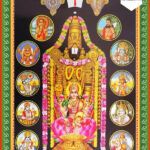 Dasavathara Puja
Dasavathara Puja
| 5 star | 100 | 100% |
| 4 star | 0% | |
| 3 star | 0% | |
| 2 star | 0% | |
| 1 star | 0% |
The Dasavathara Puja brought unexpected blessings. Booking process was smooth and easy.
The Dasavathara Puja was a profound experience. Feeling more connected to the divine.
 Dasavathara Puja
Dasavathara Puja
| 5 star | 100 | 100% |
| 4 star | 0% | |
| 3 star | 0% | |
| 2 star | 0% | |
| 1 star | 0% |
The Dasavathara Puja brought unexpected blessings. Booking process was smooth and easy.
The Dasavathara Puja was a profound experience. Feeling more connected to the divine.
FAQ
After you provide us with the necessary details, our team will take 24 to 48 working hours to finalize the auspicious date and time for your Puja. This information, including the scheduled date and time, will be sent to you via email, ensuring you are well-informed and can make any necessary preparations.
All the Pujas offered by AstroBhava are conducted within our sacred Tantric temples located in Coimbatore, Tamil Nadu, and Palakkad, Kerala. These temples are specially consecrated for performing Tantric rituals, providing a powerful and spiritually charged environment for the ceremonies.
Due to the highly sacred and esoteric nature of the rituals performed in our Tantric temples, we are unable to live telecast the ceremonies. However, if you wish to witness the Puja, you are most welcome to visit our temples in person. Please notify our Customer Support team about your visit, and we will be happy to host you, allowing you to experience the rituals firsthand.
Because the rituals are conducted in our Tantric temples, we are unable to capture photographs or video recordings of the ceremonies. The sacred and private nature of these rituals prohibits any form of media documentation, ensuring the sanctity and purity of the Puja are maintained.
Yes, Prasad is shipped after the completion of the Puja as a sacred offering blessed during the ritual. Prasad shipment is provided for 1-day 11-day, 21-day, and 48-day Pujas, and will reach you as a token of divine blessings and positive energy.
Yes, if you opt for a 48-day Puja, a Yantra will be energized continuously for the entire duration of the ritual. The Yantra, which is a powerful Vedic device with intricate geometric patterns, will be imbued with divine energy and then locked inside a Silver Amulet. This amulet, along with the energized Yantra, will be shipped to you, serving as a source of positive energy and protection.
The 48 days correspond to the 27 Nakshatras (Birth Stars), 12 Rashis (Moon Signs), and 9 Planets, totaling 48.
A Yantra is a special Vedic device that serves as a powerhouse of supreme cosmic energy. It consists of complex geometric patterns and holy signatures. When activated, a Yantra can create a positive environment, channeling divine energies to bring about beneficial changes in your life. Each Yantra is unique and corresponds to a specific deity, enhancing the spiritual and material well-being of the person using it.
Yantras are energized through a three-day process: Jala Pradishta (drawing geometric figures, dipping in Panchakavya), Prana Pradishta (energizing with Pranayama), and Jeeva Pradishta (chanting mantras 108 times with offerings).
Yes, we ship Prasadam and energised Yantras to devotees across the world, in accordance with the selected packages and wherever applicable. Shipping is completely free for all international and domestic deliveries.
Related Rituals
Related products
-
Add to WishlistAdd to Wishlist
Aghora Pasupatha Puja
Rated 4.67 out of 5₹1,001 – ₹48,048Price range: ₹1,001 through ₹48,048 Select options This product has multiple variants. The options may be chosen on the product page -
Add to WishlistAdd to Wishlist
Soolini Puja
Rated 4.67 out of 5₹1,001 – ₹48,048Price range: ₹1,001 through ₹48,048 Select options This product has multiple variants. The options may be chosen on the product page -
Add to WishlistAdd to Wishlist
Varahi Puja
Rated 4.74 out of 5₹1,001 – ₹48,048Price range: ₹1,001 through ₹48,048 Select options This product has multiple variants. The options may be chosen on the product page -
Add to WishlistAdd to Wishlist
Tripura Sundari Puja
Rated 4.70 out of 5₹1,001 – ₹48,048Price range: ₹1,001 through ₹48,048 Select options This product has multiple variants. The options may be chosen on the product page
Related products
-
Add to WishlistAdd to Wishlist
Brahmacharini Puja
₹1,001 – ₹48,048Price range: ₹1,001 through ₹48,048 Select options This product has multiple variants. The options may be chosen on the product page -
Add to WishlistAdd to Wishlist
Dumavati Puja
₹1,001 – ₹48,048Price range: ₹1,001 through ₹48,048 Select options This product has multiple variants. The options may be chosen on the product page -
Add to WishlistAdd to Wishlist
Garuda Puja
Rated 4.60 out of 5₹1,001 – ₹48,048Price range: ₹1,001 through ₹48,048 Select options This product has multiple variants. The options may be chosen on the product page -
Add to WishlistAdd to Wishlist
Narasimha Puja
Rated 4.68 out of 5₹1,001 – ₹48,048Price range: ₹1,001 through ₹48,048 Select options This product has multiple variants. The options may be chosen on the product page

